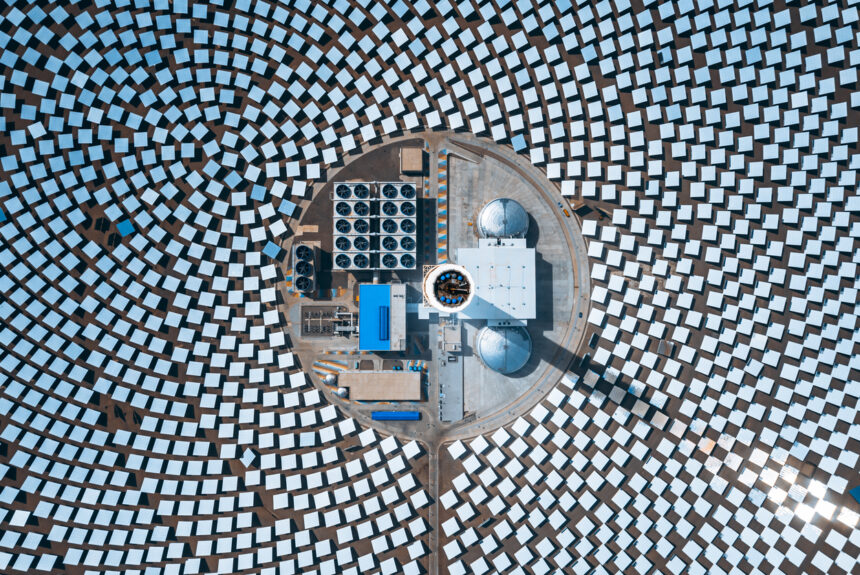After decades of mostly open trade and globalization in the 20th century, policymakers from both parties are embracing tariffs in Washington D.C. In May, the Biden administration implemented stringent tariffs, up to 100 percent, on Chinese electric vehicles, solar panels, and batteries. Meanwhile, Donald Trump has indicated that, if elected again, he would introduce a blanket 10 percent tariff on almost all imports and a 60 percent tariff on Chinese goods. While Democrats and Republicans have supported tariffs to ostensibly help hardworking American families, the costs imposed would do far more harm than good. Tariffs, and protectionist policies like it, are bad for businesses, consumers, and the environment. By restricting competition and raising prices, tariffs will impose significant challenges to the construction and deployment of clean energy.
>>>READ: How Free Trade Helps the Environment
One of the most significant ways that tariffs adversely affect clean energy (and energy investment across the board) is by exacerbating inflation. A recent study from the International Monetary Fund warned that tariffs may result in persistently high inflation which will keep interest rates high. High interest rates lead to decreased investment, including increased borrowing costs, capital costs, and uncertainty for businesses. Energy projects, including clean energy projects, are sensitive to the fluctuation of interest rates. A decrease in investment is undoubtedly a major blow, particularly at a time when new supplies will be needed to keep up with rising demand.
Excessively high financing costs will also force companies to reconsider their investment plans, possibly delaying or even canceling the development of clean energy projects. As a result, the entire clean energy industry may stagnate. In the past two years, the U.S. interest rates have played a role in shuttering offshore wind and advanced nuclear projects.
The Washington Post points out that for some critical clean energy components, like EV battery materials and solar panels, tariffs would force American companies to face higher procurement costs. These higher costs would be felt by not only producers but consumers as well. Solar tariffs, for instance, have raised the price of installation, increased costs for households and businesses, and reduced deployment. According to the Solar Energy Industries Association, the tariffs imposed from 2017-2021 “caused 10.5 gigawatts (GW) of solar installations to be canceled, enough to power 1.8 million homes and reduce 26 million metric tons of carbon emissions.”
The economic harm that taxes on imports impose ripples throughout the economy. Excessively high prices will also reduce consumers’ purchasing power and inhibit their willingness to buy.
A report from the Tax Foundation suggests that the tariff policies of both the Trump and Biden administrations will lead to a long-term reduction in GDP by 0.2%, significantly reduce employment, and place the burden of tariffs on ordinary American households. The report also indicates that Trump’s proposed tariffs, should he be elected in November, will reduce GDP by at least 0.8% and increase unemployment.
This will slow down the popularity of clean energy products among the public. Similarly, some of the cost pressures from tariffs will also be transferred to businesses and producers. Producers will become more hesitant and cautious to invest in clean energy projects, which will deter them from making bold developments in the clean energy industry. This will also slow down the progress of clean energy infrastructure construction, which will keep the cost of emerging technologies high.
>>>READ: Want to Cut Inflation and Emissions? Cut Tariffs
In addition to higher prices, tariffs can result in retaliatory tariffs, which increase prices and disrupt supply chains further.
Instead, American families and businesses would benefit from economic partnerships with other countries that rely on specialization and comparative advantages. For instance, Japan and South Korea have advanced battery technology and efficient production processes, which have led to the production of many electric vehicles, significantly reducing pollution from gasoline cars. European countries have a comparative advantage in wind turbine technology and renewable energy development. The United States has an advantage in technological research and innovation, however, the increase in tariffs has hindered normal trade of new energy projects between the U.S. and other countries. Capitalizing on these comparative advantages through trade will bring more reliable, clean technologies to consumers and businesses globally at a lower cost.
Tariffs are bad economic and environmental policy. By reducing competition and keeping interest rates high, tariffs raise costs for consumers and deter the adoption of clean technologies. Rather than embracing protectionism, the U.S. should turn to free and open markets to meet its economic and climate goals.
Hao Xu is a senior at the University of Washington and summer intern at C3 Solutions
The views and opinions expressed are those of the author’s and do not necessarily reflect the official policy or position of C3.
